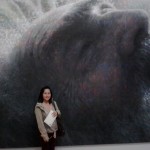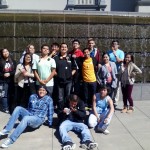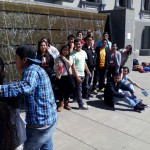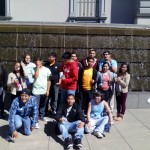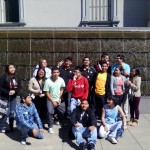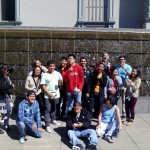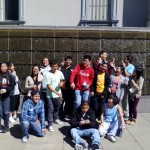Category Archives: Areas of Knowledge
Should Bradley Manning receive life in prison for releasing document to Wikileaks?
“If you had free reign over classified networks… and you saw incredible things, awful things… things that belonged in the public domain, and not on some server stored in a dark room in Washington DC… what would you do?” – quote attributed to Bradley Manning.
Ethics and Real-Life Situations
Dear Thinkers,
How might we use the ‘ways of knowing,’ or our ‘intuition’ or one of the ‘moral paradigms’ to guide us through the process of determining what is right and what is wrong? How can our approach, lens, or theory shape how we think about ethical issues? And most importantly, are you ethically responsible to act ‘ethically’ upon the knowledge you gain?
Like our art presentations, where we presented unique ideas/examples to further our discussion of art as an area of knowledge, I would like for you to find a ‘real-life’ situation that deals with ethics as an area of knowledge. A ‘real-life situation’ is real; it is not hypothetical, imagined, or fabricated. This is important because we want to engage in thinking about real issues that we can really affect.
1. Find a ‘real-life’ situation dealing with an ethical issues that can be viewed or perceived from two or more perspectives/lenses. There should be no duplicate issues shared, so whomever posts first has the most topics to select from. And, whomever posts last will need to have read all the other comments/replies so that his/her topic is new and has not yet been shared with the class.
2. Briefly summarize the issue (50 words). Include the link to the article/web site/video in your reply so we can read/view the content and comment.
3. Develop a “question about knowledge” using one of the key ToK concepts we have studied, or by linking to the ‘ways of knowing’. Post your summary and knowledge question.
4. Due Wednesday, 27 April
5. Return to this site, read, and comment on at least two of your classmates’ replies by Friday, 29 April.
I suggest that you consider exploring issues that are either international or environmental in nature because they can be viewed from a variety of perspectives. Also, consider searching these sites for your ‘real-life situation.’
Kind Regards,
Coey
p.s. I will post an example of what your reply might look like
Learning Theories: Which theories are you seeing your teachers apply?
Hey thinkers:
This week we are considering studying human beings. Yeah that’s us!
Let’s think about which learning theories we see your teachers applying to their lessons and activities.
Also, you can use this learning style quiz by Edutopia. How accurate are these results with what you know about yourself?
Using the above links or other research, consider how you are taught and how you learn, and answer these two questions:
1. Which learning theories are you seeing your teachers apply?
2. Which learning approaches seem to work best with your learning style?
Provide a response to this post by Thursday, January 31.
Cite examples from your real-life experiences.
Responses to two classmates is due by Friday, February 01.
Kind Regards,
Coey
Pseudoscience or Science?
And how can you distinguish it from real science?
Click on the above links to begin your research.
One way to detect pseudoscience is to be observant of claims that are made, yet not tested under scientific conditions. Remember that scientific claims should be reproducible, predictable, and testable. Isn’t it just easier to imagine that these actions have been taken rather than investigate it all for ourselves? Not only are we lazy, but apparently we are biologically hardwired to see patterns which seem to confirm our bias. To learn more about this idea, see this Ted.com presentation by Michael Shermer
Please reply to this post by explaining pseudoscience and by providing at least one example that you encounter in your everyday experiences and observations. What makes your example pseudoscience? What scientific thinking could be applied to test the claims that are made? How can you defend yourself against such claims?
The Natural Sciences
Dear Thinkers,
I hope to be with you all tomorrow, Tuesday. Thank you for all of your awesome questions related to math as an area of knowledge. Special thanks to those of you who posted responses to your peers.
All of the ToK grades have been updated, and I believe that these are accurate and representative of the evidence and observations I have collected and made. Overall, there has been a class-wide effort to achieve greatness, so congratulations.
Included here is another example of a chapter reading response: Ch 8 Natural Sciences I hope you have a successful discussion today.
Tuesday and Wednesday we are likely going to have an auction of scientific ideas…more on that later.
Thursday and Friday we are likely investigating modern examples of pseudo-science…think energy drinks.
Kind Regards,
Coey
What is the relationship between Math, Art, and Science?
Dear critical thinkers,
Visit these sites, explore, and generate two questions about math, art, and science:
http://www.mcescher.com/ click on ‘picture gallery’. What is the relationship between math and art?
http://www.goldennumber.net/ explore. What is the golden ratio and the Fibonacci Series? How might this mathematical insight be used to discuss elegance and beauty in mathematics?
http://classes.yale.edu/fractals/ What is significant about fractal geometry? What are the practical applications of fractal geometry? Generate a fractal here pattern here.
Questions due Thursday
Comment and respond to two classmates by Friday
Mathematics and the World
We can use mathematics successfully to model real-world processes. Is this because we create mathematics to mirror the world or because the world is intrinsically mathematical?
Using the links on the Mathematics sidebar, research Phi, the Fibonacci Series, and the Mandelbrot Set, and consider examples to include in your response. As is the case in most ToK prompts, the issue is not simple, so consider a variety of perspectives in your response.
In light of the questions above, is mathematics invented or discovered?
The Human Mind
Visit this BBC site and discover the human mind by indulging in these creative interactive teaching tools.
What sex is your brain? Total recoil? What kind of thinker are you? What is OCD?
Are these surveys scientific? Is there a way to verify the validity of the conclusions? Does it matter? How much about the our minds can we know through the process of self-examination?
What’s Your Learning Style?
Take this learning style quiz at Edutopia and answer these questions.
1. What is your learning style according to the quiz results?
2. Do you agree with the results? Why or why not?
3. What are the limitations of Howard Gardner’s Theory of Multiple Intelligences?
4. What are the assumptions of this theory?
5. Comment on at least three of your classmates posts and be sure to include questions.

